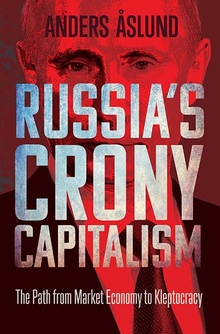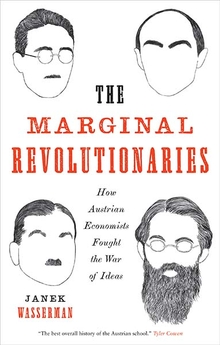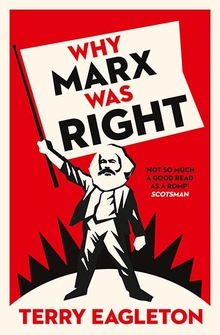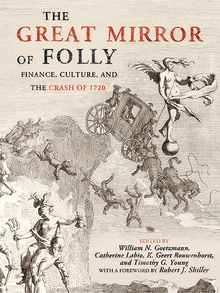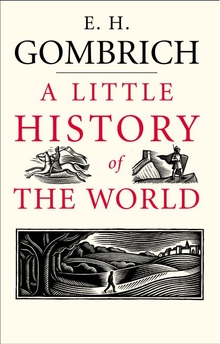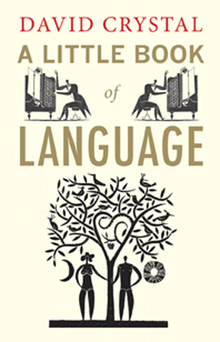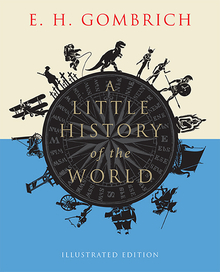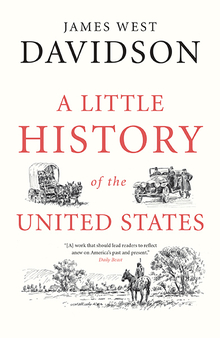A Little History of Economics
WARNING
You are viewing an older version of the Yalebooks website. Please visit out new website with more updated information and a better user experience: https://www.yalebooks.com
Niall Kishtainy
Out of Print
A lively, inviting account of the history of economics, told through events from ancient to modern times and through the ideas of great thinkers in the field
“A whistle-stop introduction to the great works and thinkers of each age, this is a clear and accessible primer.”—Laura Garmeson, Financial Times
What causes poverty? Are economic crises inevitable under capitalism? Is government intervention in an economy helpful, or harmful? While the answers to such basic economic questions matter to everyone, the unfamiliar language and math of economics can seem daunting. This clear, accessible, and even humorous book is ideal for young readers new to economic concepts, and for readers of all ages who want to better understand economic history and ideas.
Economic historian Niall Kishtainy organizes short chapters that center on big ideas and events. He introduces us to some of the key thinkers—Adam Smith, David Ricardo, Karl Marx, John Maynard Keynes, and others—while examining topics ranging from the invention of money to the Great Depression, entrepreneurship, and behavioral economics. The result is an enjoyable book that succeeds in illuminating the economic ideas and forces that shape our world.
“A whistle-stop introduction to the great works and thinkers of each age, this is a clear and accessible primer.”—Laura Garmeson, Financial Times
What causes poverty? Are economic crises inevitable under capitalism? Is government intervention in an economy helpful, or harmful? While the answers to such basic economic questions matter to everyone, the unfamiliar language and math of economics can seem daunting. This clear, accessible, and even humorous book is ideal for young readers new to economic concepts, and for readers of all ages who want to better understand economic history and ideas.
Economic historian Niall Kishtainy organizes short chapters that center on big ideas and events. He introduces us to some of the key thinkers—Adam Smith, David Ricardo, Karl Marx, John Maynard Keynes, and others—while examining topics ranging from the invention of money to the Great Depression, entrepreneurship, and behavioral economics. The result is an enjoyable book that succeeds in illuminating the economic ideas and forces that shape our world.
Niall Kishtainy, former economic policy advisor to the UK government and the United Nations Economic Commission for Africa, is guest teacher, department of economic history, London School of Economics, and author of The Economics Book and Economics in Minutes. He lives in London.
“A great introduction to economics for beginners. This book is punchy and fun, and yet thorough in explaining what economists have contributed to our understanding of the world.”—Robert Shiller, Nobel Laureate in Economics
"Those who refuse to learn from the past are doomed to repeat it. Economics can help guide policy in a sensible direction; but the misuse of economics has also left individuals, companies, and countries in ruin. To understand what economics has got right—and to avoid repeating its mistakes—read this book."—Simon Johnson, Professor at MIT Sloan and author of 13 Bankers
"A deft, highly readable history of economics, full of humanity. You'll learn a lot — I did."—Tim Harford, author of Messy and The Undercover Economist
"This book is an intellectual treasure trove for anyone interested in history, big ideas, and the role that economic thinking has played in both for more than 2000 years."—Charles Wheelan, author of Naked Economics
"Many people wish they knew more about economic ideas—but not enough, apparently, to endure the discomfort they imagine that reading about them would entail. Niall Kishtainy’s A Little History of Economics solves their problem: its brief, charming vignettes read effortlessly, yet faithfully capture the deep insights that have so profoundly transformed how we think about our world."—Robert H. Frank, author of The Economic Naturalist
"Economic theories count among the principal ideas that defined the modern world, yet the origins of the market forces that govern our lives can all too often seem distant and opaque. Enter Niall Kishtainy, who in A Little History of Economics has condensed 2000 years of thought down to 250 highly readable pages. . . . A whistle-stop introduction to the great works and thinkers of each age, this is a clear and accessible primer."—Laura Garmeson, Financial Times
"A pleasurable and easy way to become familiar with important economic ideas such as comparative advantage, unemployment, aggregate demand, inflation, and income inequality."—Foreign Affairs
“In 40 short . . . easily digestible bites, Kishtainy leads readers through a history of how people have thought about and tried to understand how economic systems work.”—Choice
ISBN: 9780300206364
Publication Date: March 7, 2017
Publication Date: March 7, 2017
256 pages, 5 1/2 x 8 1/2
40 b/w illus.
40 b/w illus.
ADDITIONAL MATERIALS




